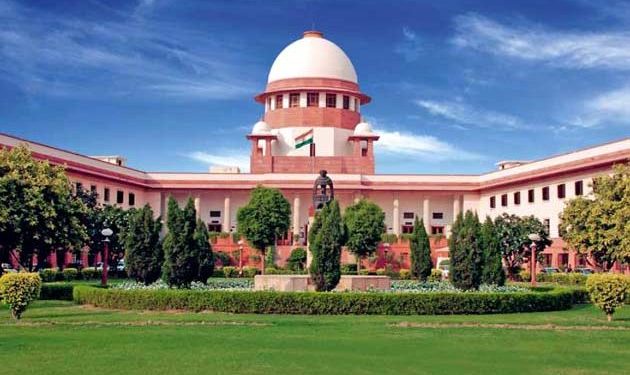New Delhi: The Supreme Court Thursday said it would hear on March 25 a fresh plea seeking immediate release of detained Rohingya refugees in Jammu and restrain the Centre from implementing any order deporting them to Mayanmar.
A bench headed by Chief Justice S A Bobde, which initially observed that there was no urgency, took note of the submissions of lawyer Prashant Bhushan that the detained Rohingyas may be deported to Mayanmar where the Army has taken over and violence is taking place.
“Ok, then we will hear the Rohingya matter on Thursday,” said the bench whch also comprised justices A S Bopanna and V Ramasubramanian.
March 11, an interim plea was filed in a pending PIL seeking immediate release of detained Rohingya refugees in Jammu and restrain the Centre from deporting them.
The plea also sought direction to Ministry of Home Affairs to expeditiously grant refugee identification cards through the Foreigners Regional Registration Office (FRRO) for Rohingyas in informal camps.
The application filed by Mohammad Salimullah, a Rohingya refugee through advocate Bhushan, said that it is filed in public interest in order to secure and protect the right against deportation of refugees in India.
The plea said that it is filed to protect rights guaranteed under Article 14 and Article 21, read with Article 51(c) of the Constitution, against the deportation of Rohingya refugees who have taken refuge in India after escaping widespread violence and discrimination against their community in Myanmar.
“Release the detained Rohingya refugees immediately and direct the Union Territory government and the Ministry of Home Affairs to expeditiously grant Refugee identification cards through the FRRO for Rohingyas in informal camps,” it said
It sought direction to the Union Government to refrain from implementing any orders on deporting Rohingya refugees, who have been detained in the sub jail in Jammu.
Violent attacks allegedly by Myanmar army men have led to an exodus of Rohingya tribals from the western Rakhine state in that country to India and Bangladesh.
Many of them, who had fled to India after the earlier spate of violence, have settled in Jammu, Hyderabad, Haryana, Uttar Pradesh, Delhi-NCR and Rajasthan.
PTI







































